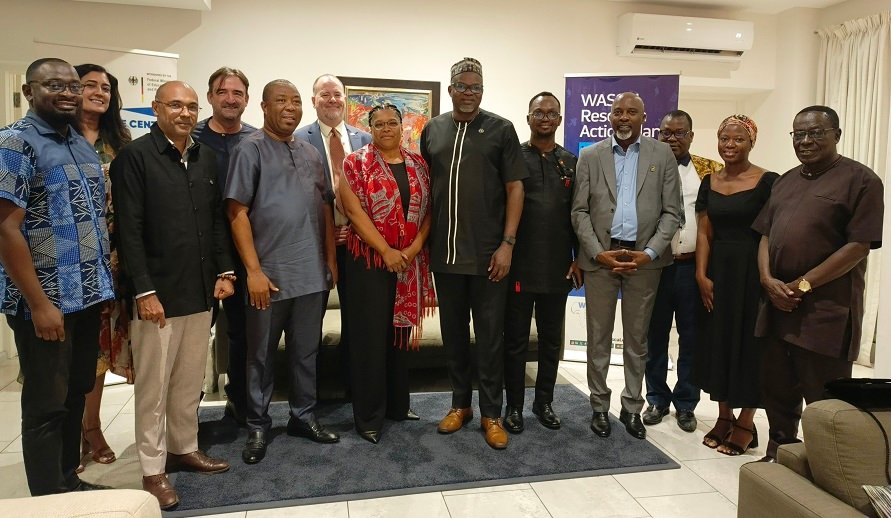The German Ambassador to Ghana, Daniel Krull, has advocated global support for the West African Science Service Centre on Climate Change and Adapted Land Use (WASCAL).
He said the inter-governmental organisation, headquartered in Accra, was playing a crucial role in the worldwide efforts to combat climate change through research, capacity building and innovation.
Mr Krull made the call on Tuesday when he hosted a networking dinner at his residence for some members of the diplomatic community in Ghana to garner support for the WASCAL.
The guests were from the European Union (EU), United States (US), Canada, World Bank, Mastercard Foundation and Ministry of Environment, Science, Technology and Innovation (MESTI).
Established in 2012 and sponsored by Germany’s Education and Research Ministry, the WASCAL is made up of 12 countries: Benin, Burkina Faso, Cape Verde, Cote d’Ivoire, Gambia, Ghana, Mali, Niger, Senegal and Togo.
It provides comprehensive climate change solutions, through capacity building, research and innovation, climate and environmental services and promotes green hydrogen and renewable energy.
Mr Krull said the work of WASCAL was aligned with Germany’s efforts to support Ghana and West Africa with its climate actions which required support of all.
He said there were many projects and research being embarked upon by WASCAL and expressed the hope that by creating the networking platform, there would be more collaborations to help do more work.
The WASCAL Executive Director, Professor Emmanuel Ramde, said the organisation had given full scholarships to more than 500 Doctor of Philosophy (PhD) and master’s degree holders since its inception.
He said they pursued 17 graduate programmes run by universities in member countries, with focus areas including climate change, agriculture, energy, water resources, forestry, Habitat, renewable energy and green hydrogen.
He said the WASCAL’s research centre based in Burkina Faso was driving climate and environmental research organisation while the organisation had churned out over 500 scientific publications.
On infrastructure, Prof. Ramde said 53 automatic weather stations had been installed across member countries with 60 automatic hydrological sensors installed for climate data.
He said the WASCAL was offering climate services by providing data and services in key sectors such as agriculture, forestry, water resources, energy, and disaster risk management.
Over the years, he said, nearly £60 million was secured for research and development projects across West Africa, and was looking forward for more support and collaboration to do more to help combat climate change.
“We work through collaboration. We leverage on the strength of each other to solve the complex issues of climate change. The collaboration could be technical or financial or both,” he said.
Prof. Ramde expressed gratitude to the German government for its support to the organisation over the years and its interest and priority on helping to implement climate actions.
BY JONATHAN DONKOR

